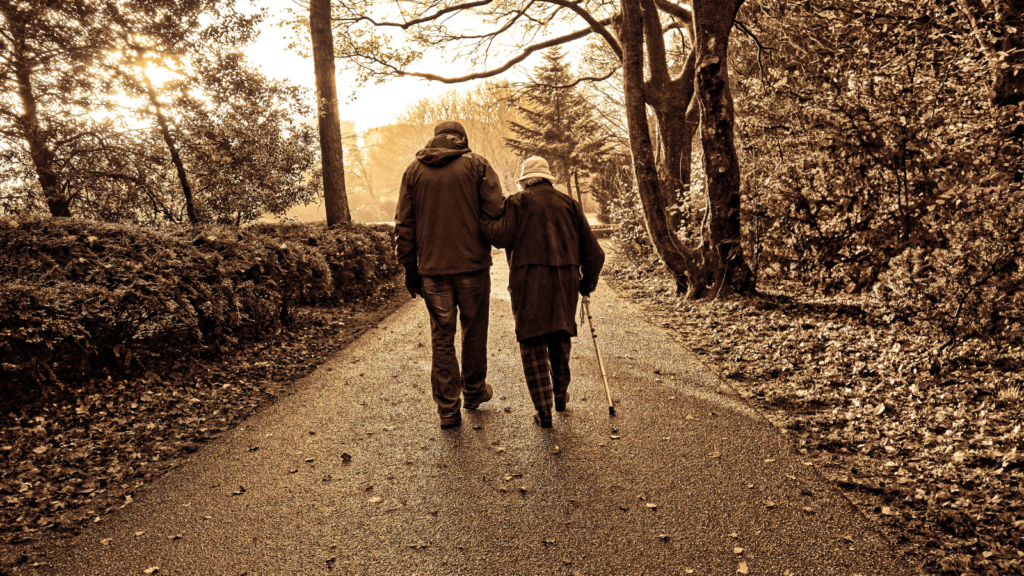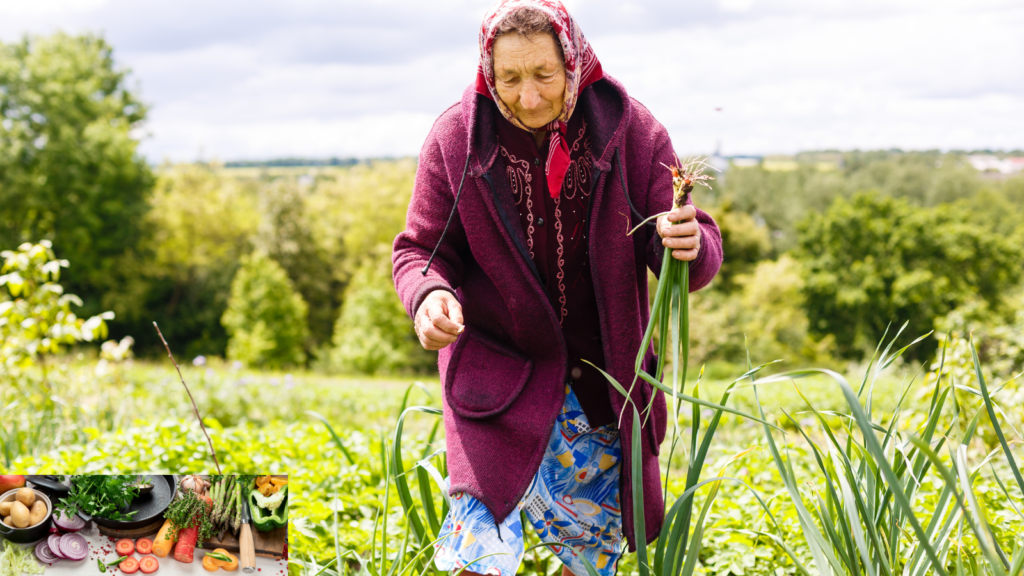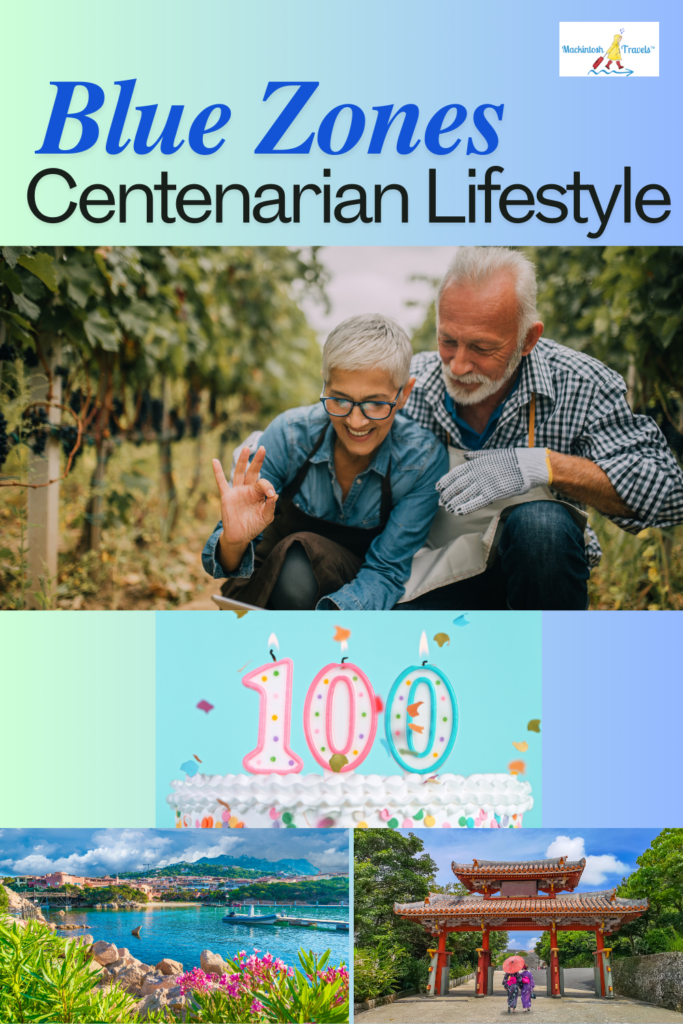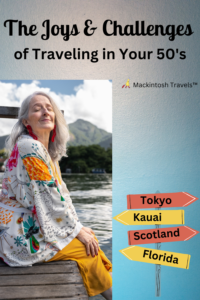Blue Zones Centenarian Lifestyle
Centenarians, individuals who live to or beyond the age of 100, represent a fascinating and growing segment of the global population. The study of these long-lived individuals offers valuable insights into the secrets of longevity, the impact of genetics and lifestyle on aging, and the potential for extending human lifespan. As a travel blogger with a keen interest in human stories and cultural phenomena, delving into the lives of centenarians around the world is not just an exploration of longevity but also a journey through diverse cultures and lifestyles.
I watched a Netflix show called “Live to 100: Secrets of the Blue Zones” that peaked my interest to write this article about centenarians. I learned so much about how they live. This article is a summary of what I learned & gathered.

The Growing Number of Centenarians
The number of centenarians worldwide has been steadily increasing over the past few decades. Advances in medical science, improved healthcare, better nutrition, and overall living conditions have all contributed to this rise. According to the United Nations, there were an estimated 573,000 centenarians globally in 2021, a significant increase from just 92,000 in 1990. This growth trend is expected to continue, with projections suggesting there could be over 3.7 million centenarians by 2050.

The Role of Genetics
One of the key factors in understanding why some people live to 100 and beyond is genetics. Studies have shown that longevity tends to run in families, suggesting a hereditary component to living a long life. Research on centenarians has identified several genetic markers associated with longevity. These markers influence various biological processes, such as cellular repair mechanisms, inflammation regulation, and resistance to age-related diseases.
For instance, certain variations in the APOE gene, which is linked to cholesterol metabolism and Alzheimer’s disease, have been associated with increased lifespan. Similarly, the FOXO3 gene, which plays a role in the regulation of cell growth and stress resistance, has been found to be more common in centenarians. While genetics play a crucial role, they are not the sole determinant of longevity. Environmental factors and lifestyle choices also significantly impact one’s lifespan.

Lifestyle and Diet
The lifestyle and dietary habits of centenarians provide important clues about the secrets of longevity. Many centenarians live in so-called “Blue Zones,” regions of the world where people tend to live longer and healthier lives. These zones include Okinawa in Japan, Sardinia in Italy, Nicoya Peninsula in Costa Rica, Ikaria in Greece, and Loma Linda in California, USA.
The Okinawa diet is rich in vegetables, tofu, soy (about 3 oz per day), sweet potatoes (especially purple ones), and fish, with a low intake of meat and dairy products. The concept of “hara hachi bu,” which means eating until you are 80% full, is also practiced, helping to prevent overeating. In Sardinia, the diet is based on whole grains, legumes, vegetables, and moderate wine consumption. Physical activity, such as walking and farming, is a regular part of daily life.
The Nicoya diet includes beans, corn, and squash, known as the “three sisters” of Mesoamerican agriculture, along with a strong emphasis on family and community ties. Ikaria is famous for its Mediterranean diet, which includes plenty of olive oil, vegetables, and moderate wine consumption. The lifestyle in Ikaria also emphasizes social interaction and regular physical activity.
Loma Linda is unique as it is home to a large population of Seventh-day Adventists, who follow a vegetarian diet, abstain from alcohol and tobacco, and emphasize regular physical activity and strong community bonds.
Overall, it’s the range of foods that is medicinal.

Social Connections and Mental Health
Another critical aspect of longevity is the importance of social connections and mental health. Centenarians often have strong social networks, close family ties, and active participation in their communities. These social connections provide emotional support, reduce stress, and contribute to a sense of purpose and belonging.
Mental health also plays a significant role in longevity. Many centenarians exhibit a positive outlook on life, resilience in the face of challenges, and a sense of humor. They often engage in activities that stimulate the mind, such as reading, puzzles, and social interaction. Maintaining cognitive function through mental engagement is crucial for healthy aging and longevity.

The Importance of Purpose
A common trait among centenarians is a strong sense of purpose. Having a reason to get up in the morning, whether it’s caring for a loved one, engaging in a hobby, or contributing to the community, provides motivation and meaning in life. This sense of purpose is linked to better mental and physical health and has been shown to contribute to increased lifespan.
In Okinawa Japan, this concept is known as “ikigai,” which translates to “reason for being.” It is the idea that having a purpose in life can lead to greater happiness and longevity. Similarly, in Nicoya Costa Rica, the term “plan de vida” (reason/purpose to live) is used to describe a similar concept of life purpose.

Lessons from Centenarians
The stories and experiences of centenarians offer valuable lessons for anyone seeking to live a longer, healthier life. While genetics play a role, lifestyle choices and environmental factors are equally important. Here are some key takeaways from the lives of centenarians:
- Healthy Diet: A diet rich in vegetables, fruits, whole grains, legumes, and healthy fats, with limited intake of processed foods, red meat, and sugar, is common among centenarians.
- Physical Activity: Regular physical activity, whether through walking, gardening, or other forms of exercise, is a daily habit.
- Social Connections: Maintaining strong social ties with family, friends, and the community is crucial for emotional well-being and longevity.
- Mental Engagement: Staying mentally active through learning, hobbies, and social interaction helps maintain cognitive function.
- Positive Outlook: A positive attitude, resilience, and a sense of humor contribute to better mental health and longevity.
- Sense of Purpose: Having a reason to get up in the morning, whether it’s caring for others, engaging in a hobby, or contributing to the community, provides motivation and meaning in life.
Conclusion
Centenarians are living testaments to the potential of human longevity. Their lives provide valuable insights into the interplay between genetics, lifestyle, and environmental factors in achieving a long and healthy life. As the number of centenarians continues to grow, understanding the secrets of their longevity can inspire and guide us in our own pursuit of a longer, healthier, and more fulfilling life.
For a travel blogger, exploring the lives of centenarians offers a unique lens through which to view different cultures, lifestyles, and the universal quest for a long and meaningful life. From the Blue Zones to bustling urban centers, the stories of these remarkable individuals remind us that the pursuit of longevity is a journey worth embarking on, rich with lessons and inspirations that transcend borders and generations.
Here is a quick summary from what I gathered from the Netflix show mentioned above.
Okinawa, Japan
- Always have fun & laugh a lot.
- Don’t get angry.
- Have fun with everyone.
- Make everyone happy.
- Enjoy the present.
- They don’t have furniture like we do. They sit/stand from the floor so they’re using their strength every day.
- Everyone has a garden and they tend to it every day.
- When they exercise it’s a gentle, low-intensity, range of motion.
- Moai is a group of people that financially help each other.
- They don’t have a word for retirement. They keep doing things that they love.
Sardinia, Italy
- Their longevity is based on faith & hope.
- They walk a lot & mostly it’s uphill & downhill.
- Eat pasta & bread, but most the good carbs like complex carbohydrates.
- Men in Sardinia do work, but they don’t appear to be stressed out. Stress is a cause of a short life.
- There are no retirement homes. They make community the core value.

PIN ME!
Related posts you may enjoy:






